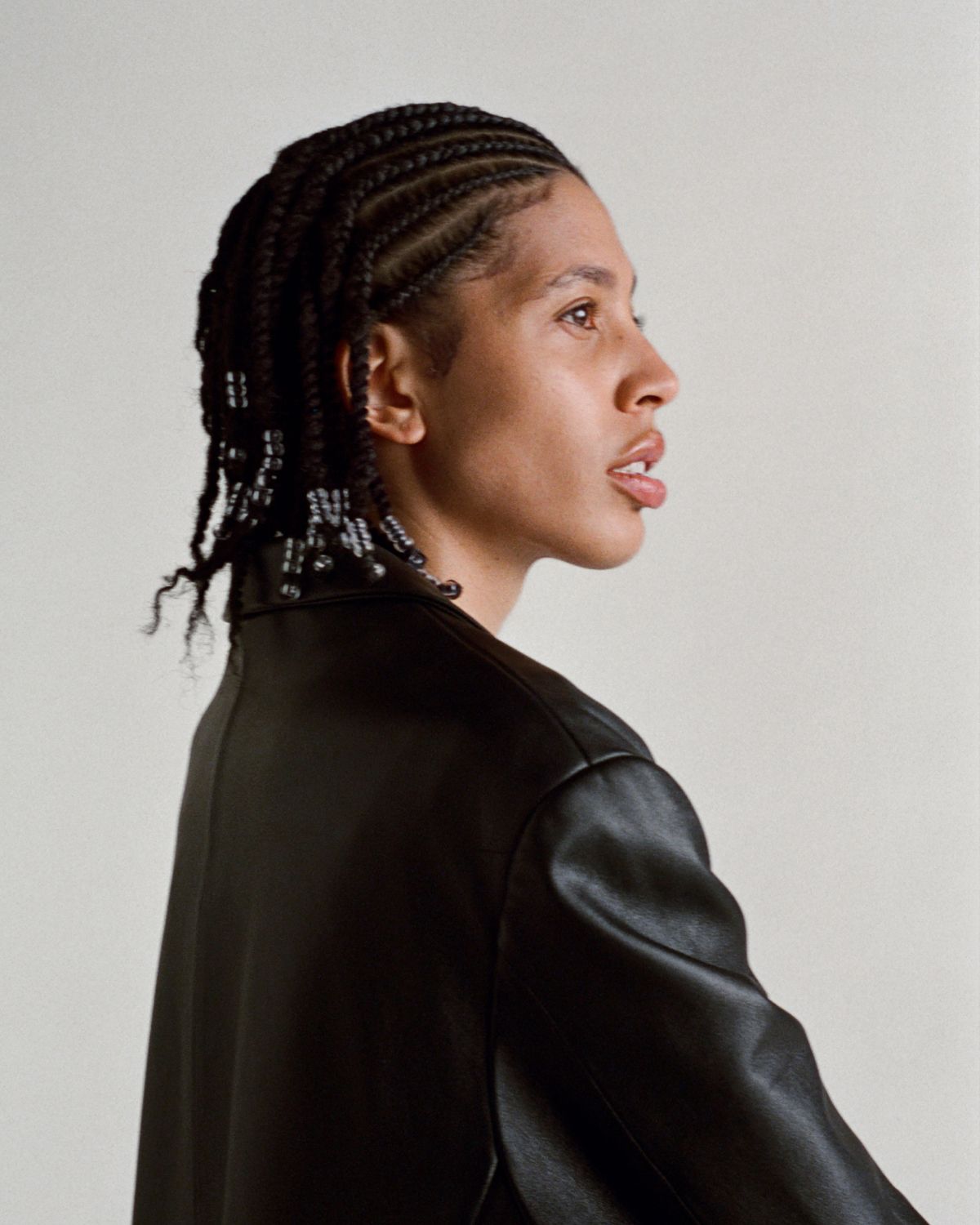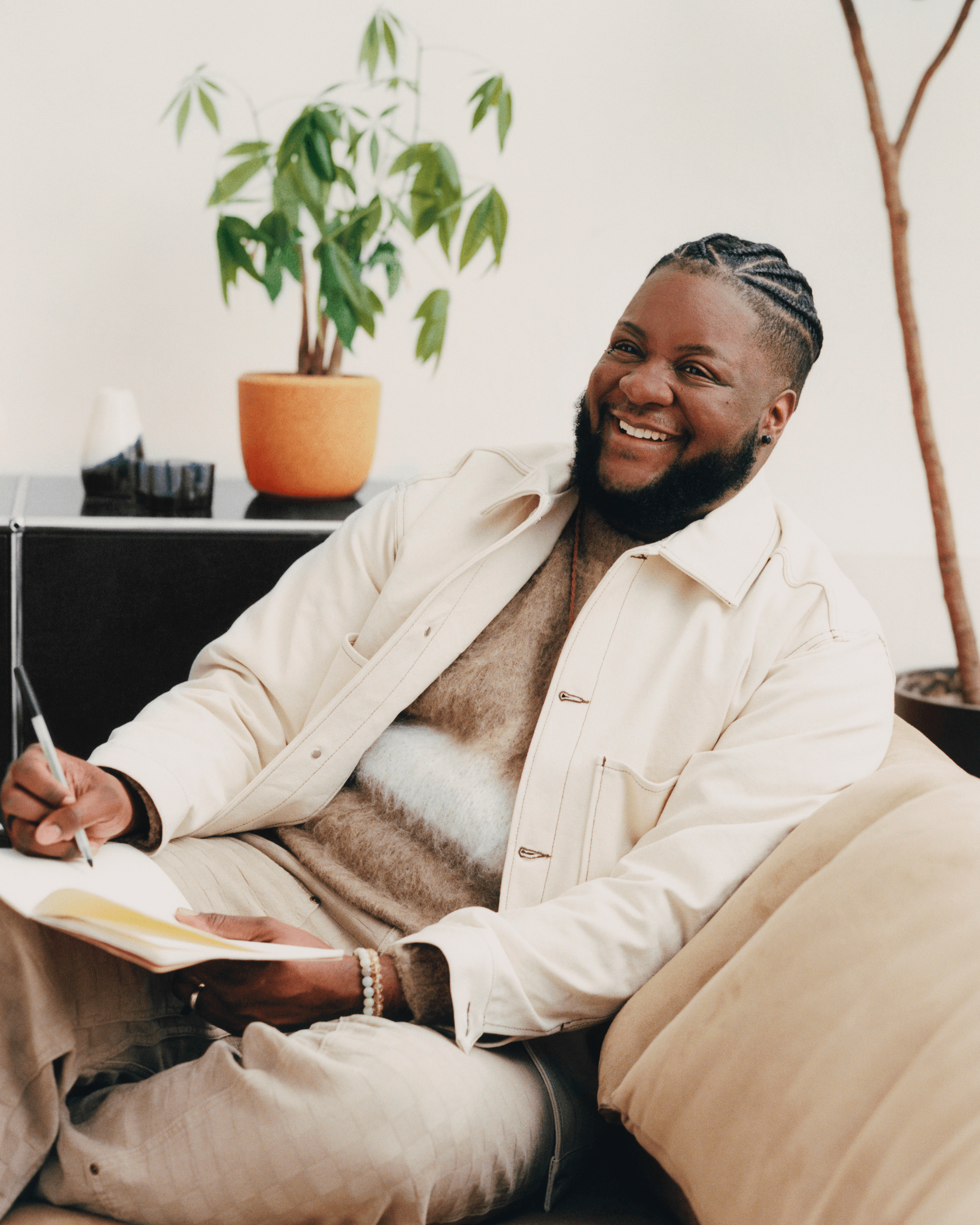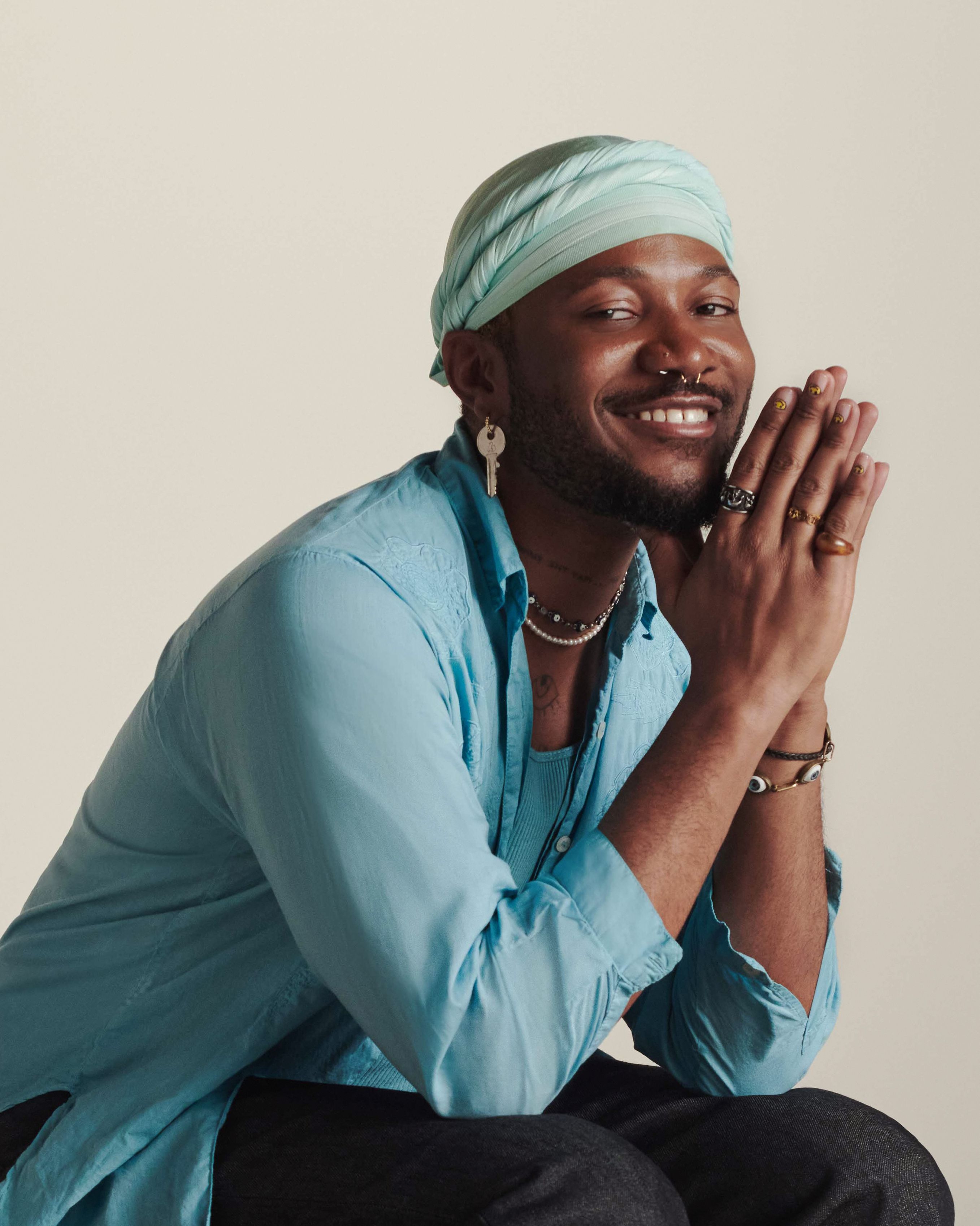How do you come out to your friends and family even when you’re nervous to?
I think, personally, the importance lies with how we understand what ‘coming out’ is as a process. The phrase itself can often be fuelled by more fear than found freedom because the term ‘out’ can imply a door you have to open that swings shut the moment you step out. That isolation can feel scary. I learned how to use language solely for myself. I swapped ‘coming out’ for ‘coming in.’ That way I could centre myself in this poignant and monumental moment. I often think about coming out into two separate parts: the coming out process I had internally with myself, which was an emancipation through having multiple conversations (sometimes arguments) with my body and spirit—which felt like coming home within myself. The second is the coming out process in which the “goal” was to articulate who I was to others. This part is often pushed as the most important, but I truly think coming into yourself and coming out to yourself and coming to terms with new futures and options for yourself is truly where you find freedom.
I urge everybody to ensure they are ready for it—to even question if you are doing it because you feel you would like to or if you feel you have to. Constantly check in with yourself to make sure this is something you are consenting to. Alongside that, I think it’s important to have a circle of people around you that can support you in this, whether it be emotional support whilst doing it, someone to call after, someone to read queer theories with, or someone to hug and hold if you don’t feel supported or seen in that moment.
Community and chosen family can really come through when biological family dynamics can’t—lean on one another!
When I came out, I lost a lot. It meant, in turn, that my queerness was always something I would have to navigate through a lens of compromise. Now I wish I stuck to my non-negotiables when coming out. You don’t have to answer questions, you don’t have to sit there whilst someone questions you, you don’t have to wait and be patience and deal with abuse whilst people are ‘coming to terms’ with your identity, you don’t have to defend your sexuality or gender or presentation, you don’t have to feel like you have the answers and can give them to others. You can feel scared, you can feel exhausted, you can feel cheated for having to even go through this process. Sometimes it is engulfed in joy and sometimes it isn’t—both are okay.
Go where it's warm. It might not be the friends and family you started with, but community can hold you like nothing else. Just remind yourself there can only be room for others if first there is room for you.
Coming out is one of the most nerve wracking things on the planet. If you’re going through this right now, I feel for you. As difficult as it was, I feel like I came out on the other side more understood and loved than ever. Above all else, keep in mind that the cis and straight people in your life never had to come out to you, so you certainly do not owe anyone a proclamation of your identity. If coming out is something that you want to do and deem safe to do, then I think it can be amazing and freeing. There is truly nothing worse than keeping parts of yourself hidden, especially from the ones you love most. I am no expert, but I will share with you the process and steps I took when coming out and coming to terms with my sexuality and gender.
I recommend being real with yourself on whether or not it is safe to come out.
If you’re worried it might affect your physical safety, housing, or financial stability, then it’d be best to pinpoint at least one person in your life you absolutely know is safe to talk to and start there. This could be a best friend, a therapist, or even a trusted guidance counselor. This person hopefully understands your circumstances and may be able to help you figure out the best steps to take.
The first person I ever told I was queer was a newer friend who had come out to me a couple weeks prior. It was one summer in high school, and this new friend of mine was a girl in a couple of my classes at music camp. I felt safe around her because I related to her in a way I hadn’t yet with my friends back home. I never even told my new friend that she was the first person I came out to, though she probably had some sort of idea, as it seemed almost every day there was some new nugget of queer culture she had to catch me up on following a I-can’t-believe-you’ve-never-heard-of-this gasp. We spent that summer updating my wardrobe, following my new favorite queer and trans icons, and catching up on tv and movies. I also spent those weeks contemplating how and when I would tell my friends and family at home about the summer I had, and introduce them to the new person I felt I was becoming. I ultimately settled on waiting until it felt like the right time, which I was convinced would never present itself, but eventually did, each at different times with the people I loved most in my life.
Visualize feeling love and belonging while being the most open version of yourself. Allow the power of that vision to give you the courage to share that part of yourself with your friends and family. Regardless of how they respond, you’ll know you’ve overcome fear and honored the most authentic vision you have for your life. I love that for you!
For many people, coming out is one of the most emotionally jarring and pivotal parts of their journeys. If you decide to, there are a few important things to keep in mind.
First, is that you are entering a new phase of your journey. You need to provide yourself grace and kindness through the discomfort you'll be facing. You're doing your best and should remind yourself of that as often as you can.
Second, think about how to do this in the safest way possible. Often, when people discuss what it means to come out, whether it’s necessary to come out, how to come out, and more, they lose sight of safety, one of the most important aspects of this process. Safety can look different for everyone and goes beyond the physical to include things like emotional safety, financial safety, or psychological safety. My recommendation, as someone who has come out several times, is to make sure that you go at whatever pace you feel is best. This could look like waiting until you have financial freedom to ensure you won’t be isolated or left stranded, or waiting until you feel you have trusting and open relationships with people around you.
Third, it's essential you understand that your identity is not a ball and chain.
Despite societal messaging and bigotry seen across the globe, your identity is a gateway. And there is a loving community here waiting with open arms to accept and embrace you on the other side of your coming out.
Coming out can start slow or be a big announcement, it can be you showing up with a partner, it can be casual or grand. It’s your story; the how is up to you. I came out via proxy. After deciding coming out was best for me, I mulled over the best way to share this part of myself I’d hidden from the world for months. I waited to be away at college in my freshman year, prepared for the worst-case scenario of being disowned by family. I had my sister play one big game of telephone, calling dozens of family members on my behalf—having a safety person might work for you, too! Thankfully, my family swarmed me with positive messages, calls, and affirmations of their love for me that wouldn't waiver because of who I am or who I'm attracted to. While not everyone will receive a happy ending, and every story won’t be as seamless, taking the time to figure out what you need to embark on this new chapter of your life is crucial.
Remember, give yourself grace, assure your safety as best you can, and know that your community is here waiting for you. You’re doing a lot better than you know!
Explore all questions, or read more about navigating the holidays
NFAQ is an educational guide for Not-So-Frequently-Asked questions, submit a question to expand this discussion.
HaveMoreQuestions?
NFAQ is an educational guide for Not-So-Frequently-Asked questions, submit a question to expand this discussion.







